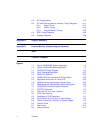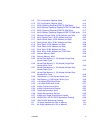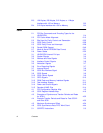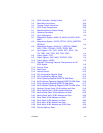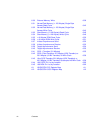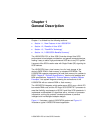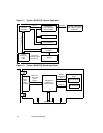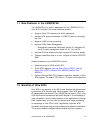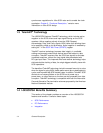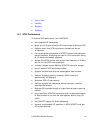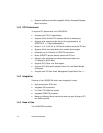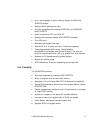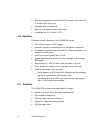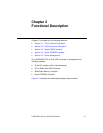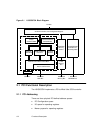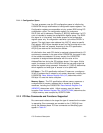
1-4 General Description
synchronous negotiations for Ultra SCSI rates and to enable the clock
quadrupler. Chapter 2, “Functional Description,” contains more
information on Ultra SCSI design.
1.3 TolerANT
®
Technology
The LSI53C875A features TolerANT technology, which includes active
negation on the SCSI drivers and input signal filtering on the SCSI
receivers. Active negation actively drives the SCSI Request,
Acknowledge, Data, and Parity signals HIGH rather than allowing them
to be passively pulled up by terminators. Active negation is enabled by
setting bit 7 in the SCSI Test Three (STEST3) register.
TolerANT receiver technology improves data integrity in unreliable
cabling environments where other devices would be subject to data
corruption. TolerANT receivers filter the SCSI bus signals to eliminate
unwanted transitions, without the long signal delay associated with
RC-type input filters. This improved driver and receiver technology helps
eliminate double clocking of data, the single biggest reliability issue with
SCSI operations.
The benefits of TolerANT technology include increased immunity to noise
when the signal is going HIGH, better performance due to balanced duty
cycles, and improved fast SCSI transfer rates. In addition, TolerANT SCSI
devices do not cause glitches on the SCSI bus at power-up or
power-down, so other devices on the bus are also protected from data
corruption. TolerANT technology is compatible with both the Alternative
One and Alternative Two termination schemes proposed by the American
National Standards Institute.
1.4 LSI53C875A Benefits Summary
This section of the chapter provides an overview of the LSI53C875A
features and benefits. It contains these topics:
• SCSI Performance
• PCI Performance
• Integration



